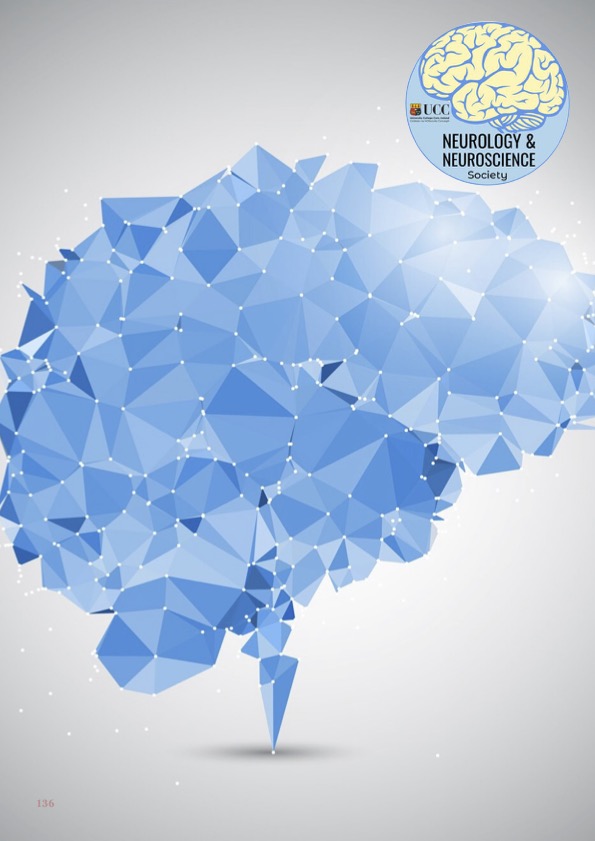Enter Modius: Neurovalens's innovative new solution to insomnia
DOI:
https://doi.org/10.33178/SMJ.2024.1.19Keywords:
Insomnia, Hypothalamus, Brain StimulationAbstract
Adequate sleep is an important aspect of a healthy lifestyle that increasingly seems to evade many. Factors like elevated stress and poor sleep hygiene are some of the primary culprits behind this, and the consequences they can have on patients’ health are hard to overstate. Insufficient sleep has been documented to have adverse long-term effects on patients’ cardiovascular health, immune systems, and mental well-being, among many other facets of health. Given this, patients with insomnia are at significantly elevated risk of developing these negative health outcomes over time. Insomnia is defined as difficulty with sleep onset or maintenance with associated daytime deficiencies, such as poor concentration. In Ireland, it has been estimated that up to 15% of the population struggle with this potentially debilitating disorder, surpassing some other European populations. Further complicating things, the management of this disorder can be quite difficult and inconsistent. The pharmacological options we currently have at our disposal tend to either have limited efficacy, like melatonin receptor agonists, or carry the risk of dependence, such as benzodiazepines. As for non-pharmacological therapies, our options are extremely lacking, with cognitive behavioural therapy being the only such treatment currently recommended by the Centers for Disease Control and Prevention (CDC).
References
Rosenberg R, Citrome L, Drake CL. Advances in the Treatment of Chronic Insomnia: A Narrative Review of New Nonpharmacologic and Pharmacologic Therapies. Neuropsychiatr Dis Treat. 2021;17:2549-2566. Published 2021 Aug 6. doi:10.2147/NDT.S297504
Hyland P, Vallières F, Shevlin M, et al. State of Ireland's mental health: findings from a nationally representative survey. Epidemiol Psychiatr Sci. 2022;31:e47. Published 2022 Jul 1. doi:10.1017/S2045796022000312
Chevalier H, Los F, Boichut D, et al. Evaluation of severe insomnia in the general population: results of a European multinational survey. J Psychopharmacol. 1999;13(4 Suppl 1):S21-S24. doi:10.1177/026988119901304S04
Harrold EC, Idris AF, Keegan NM, et al. Prevalence of Insomnia in an Oncology Patient Population: An Irish Tertiary Referral Center Experience. J Natl Compr Canc Netw. 2020;18(12):1623-1630. Published 2020 Dec 2. doi:10.6004/jnccn.2020.7611
Applications for Neurovalens Technology. Neurovalens. Accessed January 7, 2024. https://neurovalens. com/pages/technology#null.
Goothy SSK, McKeown J. Modulation of sleep using electrical vestibular nerve stimulation prior to sleep onset: a pilot study. J Basic Clin Physiol Pharmacol. 2020;32(2):19-23. Published 2020 Oct 5. doi:10.1515/ jbcpp-2020-0019
Cheung T, Lam JYT, Fong KH, et al. Evaluating the Efficacy of Electrical Vestibular Stimulation (VeNS) on Insomnia Adults: Study Protocol of a Double-Blinded, Randomized, Sham-Controlled Trial. Int J Environ Res Public Health. 2023;20(4):3577. Published 2023 Feb 17. doi:10.3390/ijerph20043577
McConnell C. Neurovalens receives FDA clearance for medical device to treat Insomnia. Neurovalens. October 31, 2023. Accessed January 7, 2024. https://neurovalens.com/blogs/news/neurovalens-receivesfda-clearance-for-medical-device-to-treat-insomnia.

Downloads
Published
License
Copyright (c) 2024 Andrew Iskander

This work is licensed under a Creative Commons Attribution-NonCommercial 4.0 International License.









